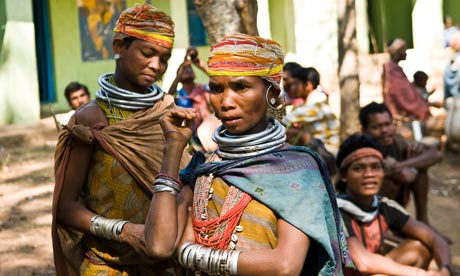
Once tourists went to India to tick off the sights of the "golden triangle" – the forts, temples and palaces of Delhi, Jaipur and the Taj Mahal. A traveller today is just as likely to include a slum tour in Kolkata or a day trip to a remote tribal area. "Authenticity" is the new mission, and it is taking us to ever more remote destinations. But in our quest for the exotic and the authentic, we risk destroying the thing we seek.
The normal rhythms and dynamics of village life cease the moment bus loads of tourists start arriving on a regular basis. No matter how well intentioned the traveller or "ethical" the tour operator, these whistle-stop "cultural tours" make any equality or meaningful interaction impossible. Visitors feel uncomfortable, voyeuristic or powerless when confronted with the poverty; and the indigenous people learn to see the incomers as walking cash dispensers. Nobody is richer for the experience, except the tour operator.
There are many commendable, responsible tourism projects out there, but it's difficult for consumers to decipher the marketing jargon and establish the nature of the transaction with the local people. Travel companies will boast that host communities receive a "share of the profits". But this "share" is often as little as 2%. And who in the community gets this money? How is it distributed? What about individuals who want to opt out? How do they do that when their homes and way of life have become another stop on the tourist trail? The industry has made tentative steps in the right direction, establishing codes of conduct and fair-trade schemes, but these are voluntary and far from universal. Governments have a duty to protect vulnerable communities such as the Bonda from exploitation, but the will to do this will only come when travellers start voting with their feet.
In the absence of consistent regulations, the onus is on travellers to do their homework. If you want to get off the beaten track and have an authentic experience, give the coach trip a miss and organise a home-stay or check into a locally run guesthouse rather than just dropping in for a photo opportunity. Alternatively, look for reputable and small-scale initiatives such as the Village Ways scheme (villageways.com) which takes small groups into rural parts of the Himalayas, Kerala and Ethiopia, staying in village-run guesthouses and feeding profits back into the community. It will cost more than a coach trip, but ultimately it's a more enriching experience for both host and visitor.

